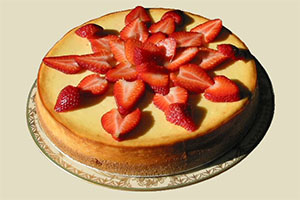5.4 Genitive Case for Direct Objects after Negation (Masculine Nouns)

In this module, you will learn the main categories of masculine nouns that take the endings –у or –ю in genitive rather than –а or –я. You will also become familiar with the Ukrainian equivalent of the construction neither… nor… and its use with genitive nouns.
Завда́ння 1
In the dialogues below, note how some direct object masculine nouns in genitive case take the ending –а (or –я) and other ones take –у. Note also the underlined Ukrainian negative construction “neither… nor…”, which can also be used with direct object nouns in genitive case.

– Ти не хо́чеш торта́?
– Я не хо́чу ні торта́, ні пирога́. Я за́раз не їм десе́рту, бо я на діє́ті.

– Коли́ ви бу́дете в Оде́сі, ти бу́деш ма́ти оди́н день на музе́ї і на теа́тр?
– Ви́бач, я не бу́ду ма́ти дня. Я взагалі́ не бу́ду ма́ти ча́су на розва́ги!
Read the text and mark all direct object nouns in the genitive case. Then answer the question that follows.
Важли́во!
Singular masculine nouns that denote concrete things (or people) generally take the endings –а or –я in the genitive case. Singular masculine nouns that denote abstract notions generally take the endings –у or –ю.
For example:
Я не хо́чу торта́.
Я не хо́чу десе́рту.
Я не ма́ю дня.
Я не ма́ю ча́су.
In the first example, торт (‘cake’) refers to a specific object whereas десе́рт (‘dessert’) refers to a type of food. In the second example, день (‘day’) is a specific measure of time whereas час (‘time’) refers to the whole notion in general.
Завда́ння 2
Complete the sentences below paying careful attention to context and to what you have learned about the use of direct objects thus far. Then answer the question that follows.
Завда́ння 3
For each response you hear below, choose the most appropriate question to solicit that response. Then indicate whether the genitive nouns in the responses refer to something concrete (конкре́тне) or abstract (абстра́ктне).
Transcript – Завда́ння 3
- Я ще не знаю результату.
- Надя не має паспорта.
- Все добре, але я не люблю клімату в Техасі.
- Так, але я там не знайшла матеріалу.
- Дякую, я не хочу сирника.
- Я зовсім не знаю його характеру.
Цікаво!
Several groups of nouns are thought of as “abstract” in Ukrainian and therefore take the endings –у or –ю in the genitive case. Sports games constitute one such group. For example:
– Ти лю́биш баскетбо́л?
– Я не люблю́ баскетбо́лу.
– Ви диви́лися вчо́ра хоке́й?
– Ні, ми не диви́лися хоке́ю.
Another such group of nouns are institutions and many places more generally – even those among them that are quite tangible, such as buildings. For example:
Це мі́сто не має університе́ту.
Я не люблю́ база́ру.
Я не ба́чу тут готе́лю.
За́вдання 4
Two acquaintances, Тетя́на and Настя, are discussing their interests. You will hear the beginnings of eight statements made by either Тетя́на or На́стя. Select the most suitable ending for each statement basing your decision both on the grammar and on the fact that Тетя́на doesn’t like any team sports and На́стя doesn’t like to read much.
Transcript – Завда́ння 4
- Я зовсім не люблю…
- Я дуже люблю…
- Я дуже люблю…
- Я не люблю…
- Я ніколи не любила…
- Я ніколи не любила…
Важли́во!
Regardless of the genitive ending taken by a masculine noun, the stem modifications that occurred in these nouns in nominative plural will also happen in the genitive case. For example, the nouns ending with the suffix –ок will drop the –o– in genitive:
квито́к – квитки́ – квитка́ (‘ticket’)
сніда́нок – сніда́нки – сніда́нку (‘breakfast’)
Завда́ння 5
Complete the sentences below paying careful attention to context and to what you have learned about the use of direct objects thus far. Then answer the questions that follow.
Цікаво!
Another group of masculine nouns that are categorized together with the abstract ones and take the endings –у or –ю in the genitive case are mass nouns, which are uncountable. A lot of food items belong to this group, for example:
Я не їм ри́су, си́ру, шокола́ду, су́пу і ніко́ли не п’ю ча́ю та алкого́лю.
Many natural phenomena also belong to this group:
Тут чудо́ва зима́! Ми не ма́ємо ні дощу́, ні сні́гу, ні на́віть ві́тру!
дощ = ‘rain’, сніг = ‘snow’, ві́тер (note the dropped -e- in genitive “ві́тру”) = ‘wind’
Завда́ння 6
Read the dialogues below and mark all direct object nouns in the genitive case. Then answer the questions that follow.
Цікаво!
Most masculine nouns that denote geographical places also take the endings –у or –ю in the genitive case. The only exception to this rule are the names of cities or towns, which take the endings –а or –я. Compare:
Я була́ в А́зії, але́ я не ба́чила ні Кита́ю, ні В’єтна́му, ні Тибе́ту.
Я була́ в Украї́ні, але́ я не ба́чила ні Ки́єва, ні Льво́ва, ні Терно́поля.
(Note the stem modifications in genitive in the names of the Ukrainian cities Ки́їв, Льві́в and Терно́піль!)
As you can see, the rules for genitive endings in singular masculine nouns are quite complex. Even the native speakers of Ukrainian make errors in these forms. That is why most dictionaries of Ukrainian will list the genitive case ending (with the stem modification, if applicable) for masculine nouns – often in this format:
океа́н, у
трамва́й, я
Льві́в, о́ва
Завда́ння 7
The audio below contains seven unfinished statements. Complete each statement with the most appropriate noun form.
Transcript – Завда́ння 7
- Я була в Італії, але не бачила…
- Я бачила великі річки, але ніколи не бачила…
- Ми були в Азії, але не відвідали…
- Він довго жив у Бельгії, але ніколи не любив…
- Ми часто відпочиваємо в Україні, але ще ніколи не бачили…
- Я дуже люблю великі міста. На жаль, я ще ніколи не бачила ні Лос-Анджелеса, ні…
- Я давно живу у США, але не бачила ні Оклахоми, ні Техасу, ні…
Завда́ння 8
Complete the text below paying careful attention to context and to what you have learned about the use of direct objects thus far.
Мо́вний пазл
Look through the activities you have just completed and choose the correct statements below to summarize what you have learned.
А тепе́р тест!
Complete the dialogues below by providing the correct noun endings. Then answer the questions that follow.

